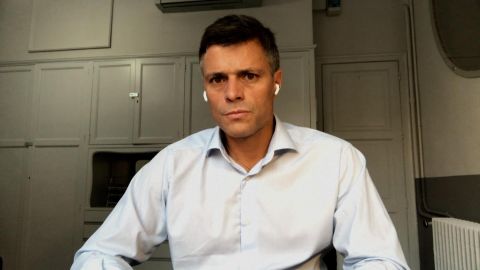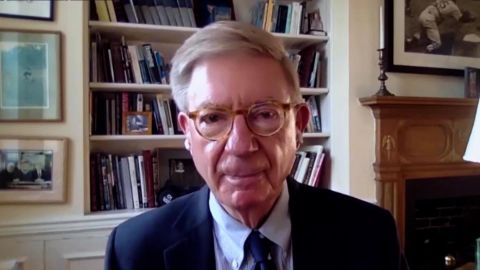Read Transcript EXPAND
GEORGIA WELLS, “THE WALL STREET JOURNAL”: Yes, the documents — one of the documents said 32 percent of teen girls said that when they felt bad about their bodies, Instagram made them feel worse. Another document said — quote — “We make body image issues worse for one in three teen girls.” That was a study of teen girls who struggled with these issues.
BIANNA GOLODRYGA: Clearly acknowledging that Facebook and Instagram knew of this issue. I was really struck by an interview that you conducted with Anastasia Vlasova. And she talked about her struggles with eating disorders and mental issues and thoughts of self-harm, because she says of what she saw on Instagram and what she was exposed to starting at a very young age. Let’s listen to some of that interview.
(BEGIN AUDIO CLIP)
ANASTASIA VLASOVA, INSTAGRAM USER: I definitely realized that a lot of the content that was produced by some of my favorite fitness influencers triggered my binges or my restrictive cycles. And I vividly remember this one time when I ate, I think it was a piece of cake or ice cream, just some kind of dessert that isn’t the healthiest for you. But it’s no big deal. And I made my mom take me to the gym around 9:30 or 10:00 p.m. just so I could run six miles and burn off what I had just consumed.
(END AUDIO CLIP)
GOLODRYGA: And it all went downhill even more so for her as she got older. But the good news is that she’s OK now and she’s healthy. But she got there, because, Georgia, she quit Instagram. I mean, is that the only solution here? What is anything that Facebook is doing and Instagram is doing to mitigate this?
WELLS: I have spoken to many, many teen girls over the past several weeks. Anastasia clearly quit Instagram. Other teens I have spoken to said they have now installed the apps that can limit the amount of time they spend each day on Instagram. But Instagram also — we spoke to current researchers there who say that they’re cautiously optimistic about some new features they’re working on. So one would be a nudge that might try to direct a user away from more harmful pieces of content. The other might be a nudge that would remind the user to take a break from Instagram. But the documents also state that some of the most vulnerable teenagers can be the hardest to reach.
GOLODRYGA: Right. And, Tristan, this is where I want to bring you in, because I don’t want to put words in your mouth. But I would imagine that this report, this bombshell reporting from “The Wall Street Journal,” and all the internal documents that they have revealed within Facebook and Instagram itself, are not of a surprise to you.
TRISTAN HARRIS, CO-FOUNDER, CENTER FOR HUMANE TECHNOLOGY: No. Bianna, thank you for having me. And, yes, I think this “Wall Street Journal” investigation is incredibly important. I think it puts meat on the bones of what so many people have been feeling. Some people might be feeling that this is equivalent of a news story saying water is wet. I think people now understand and agree that this is a deranging brain implant for our society. We have essentially two billion people who are jacked into a brain implant that does not have our best interests in mind.
About This Episode EXPAND
Angela Povilaitis; Georgia Wells; Tristan Harris; Leopoldo López; George Will
LEARN MORE



